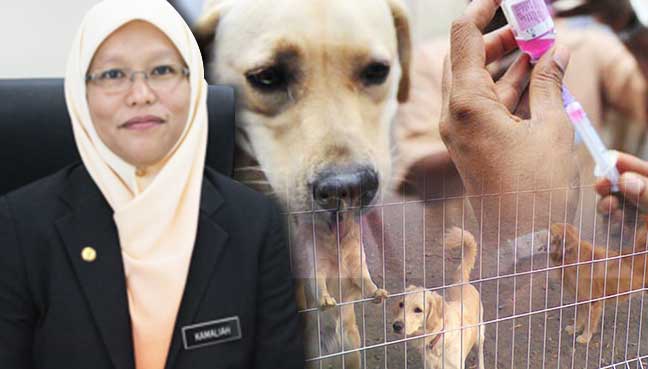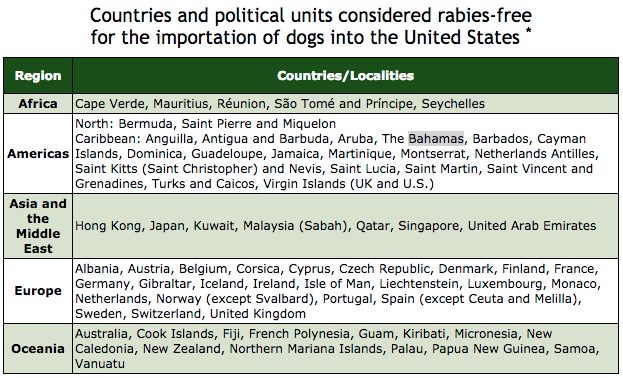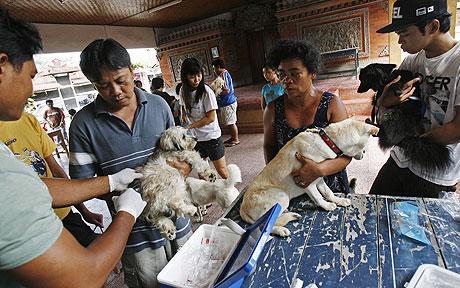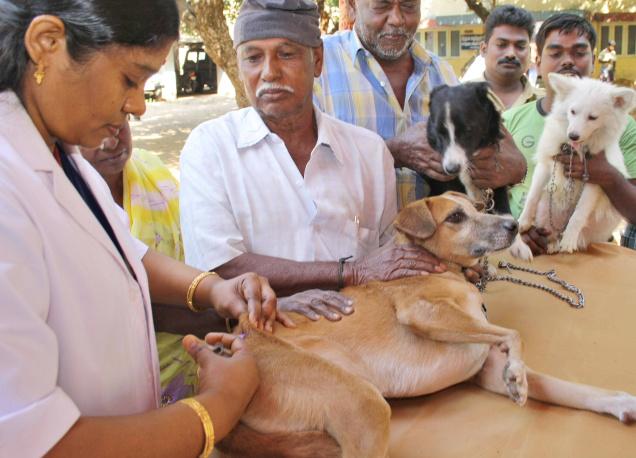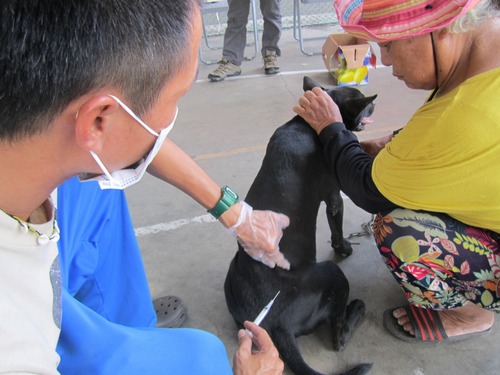6 Asian Countries Penang Can Learn From In Its Efforts To Curb The Rabies Outbreak
Bali and China have taken to culling stray dogs in some districts, while others turned to vaccinations to stem further outbreak.
Three years after the World Health Organisation (WHO) declared Malaysia rabies-free, the contagious - and often fatal - disease seems to have returned with several cases reported in Perlis, Kedah, and Penang
“Up to last year, Malaysia was free from rabies. The last case reported involving humans was in 1998, while the last rabies case, affecting animals, was in 1999,” said Health Ministry director-general Datuk Dr Noor Hisham Abdullah.
thestar.com.myIn Penang, an 11-year-old boy from Taman Nelayan, Balik Pulau and a 44-year-old man from Pokok Sena, Seberang Perai came down with the disease in the past 2 weeks. Both have since been released from the hospital after treatment. Meanwhile, a 65-year-old man from Balik Pulau has just been confirmed to have gotten rabies after he was bitten by an infected dog.
In Kedah, 5 people have contracted rabies last week after they were bitten by stray dogs. Another 22 cases have been reported in Perlis since 19 August, where the disease is believed to have been transmitted from.
To curb the spread of the virus, Penang Chief Minister Lim Guan Eng authorised some 200 veterinary services workers to capture and put down all strays in the state
“The decision was made after consulting with veterinary and health experts. It’s the best way to tackle the problem,” Lim said.
Any dog - strays or domesticated as pets - would be caught if found straying outside private premises.
He said state authorities would execute the culling under the Anti-Rabies Vaccination (State of Penang) Order 2015, a ruling gazette by the state government on Monday under the Animal Act 1953.
State health exco Dr Afif Bahardin said it was not possible to first detect which dogs were infected and kill only those positive of rabies, because there were 50,000 dogs in Penang and half of them were strays.
“Just this morning, we consulted animal welfare groups and they are trying to be supportive. They understand the situation and the risks. We hope the public will also understand. We are trying to protect human lives and also household pets. This is the way to stop the disease from spreading,” he said.
While some applaud the state government for their swift action in containing the disease, it has also drawn criticism among animal lovers and welfare groups who voiced their concerns about animal cruelty, insisting that vaccination and quarantine be implemented instead
Start Vaccinating group's protest at the Esplanade against mass culling in Penang on 20 September.
Image via Friends of BN's FacebookAnimal welfare groups and animal lovers, dismayed at the order to kill all stray dogs over two incidents, protested near the state government’s office in Komtar on 20 September. The night before also saw a protest at Straits Quay in Tanjung Tokong.
The protest was organised by a group calling itself “Stop Killing, Start Vaccinating’” The group was formed in immediate response to the state government’s Thursday announcement of a mass culling of stray dogs to curb the spread of rabies in Penang.
Animal welfare groups that have been rescuing strays insist that vaccination, instead of the killing of innocent dogs, is the way to go. The groups are reportedly engaging the help of international group Worldwide Veterinary Service (WVS), which has experience fighting rabies with vaccination.
Indeed, dog owners in Penang are urged to bring their pets for vaccination at the state Veterinary Department in Bukit Tengah, Bukit Mertajam for RM35 per dose, while Kedah is providing free vaccinations and has applied for additional supplies to cater to the state's dog population
“All vaccinated dogs will be given a tag. Dog owners who take their dogs to private veterinary clinics, have to get a letter from the veterinarian and bring it to the department to get the tag,” Dr Afif added.
thestar.com.myAt the same time, the Veterinary Department has advised dog owners to keep their pets confined for at least two months to prevent them from being infected by stray dogs.
Kedah Veterinary Services Department director Dr Kamaliah Ghazali advised dog owners to take precautions to ensure their pets do not get into contact with stray dogs, either through bite or saliva which could cause the spread of the virus.
Rabies, usually spread through bites or scratches (via saliva), causes acute inflammation of the brain in humans and other mammals.
It is often fatal following the onset of clinical symptoms such as fever and tingling at the site of exposure, followed by violent movements, uncontrolled excitement, fear of water, an inability to move parts of the body, confusion, and/or loss of consciousness.
Hospitalized human rabies victim who was restrained while bedridden.
Image via Centers for Disease Control and PreventionIn more than 99% of human cases, the rabies virus is transmitted by domestic dogs. Transmission can also occur when infectious material – usually saliva – comes into direct contact with human mucosa or fresh skin wounds. Human-to-human transmission by bite is theoretically possible but has never been confirmed.
Unfortunately, no tests are available to diagnose rabies infection in humans before the disease flares up, nor is there a cure for it. Hence, it is crucial that prevention methods i.e. preventive vaccinations are implemented to curb the spread of the virus:
2. Preventive immunization in people: The same safe and effective vaccines can be used for pre-exposure immunization. This is recommended for travellers spending a lot of time outdoors, especially in rural areas, involved in activities such as bicycling, camping, or hiking as well as for long-term travellers and expatriates living in areas with a significant risk of exposure.
Pre-exposure immunization is also recommended for people in certain high-risk occupations such as laboratory workers dealing with live rabies virus and other rabies-related viruses (lyssaviruses), and people involved in any activities that might bring them professionally or otherwise into direct contact with bats, carnivores, and other mammals in rabies-affected areas. As children are considered at higher risk because they tend to play with animals, may receive more severe bites, or may not report bites, their immunization could be considered if living in or visiting high-risk areas.
According to the Centers for Disease Control and prevention, the only jurisdictions that have been considered rabies-free are:
What about the rest of the world, especially high risk territories such as Bali and Thailand?
Bali has had a severe outbreak of canine rabies since 2008, which has killed about 160 people as of July 2015. A mass animal vaccination program was launched in 2012, bringing down the number of rabies cases.
However, the disease is on the rise again, having claimed 12 lives this year. To curb the disease, Bali Governor Made Mangku Pastika ordered a culling of wild dogs across the island to criticisms from many NGOs and animal lovers.
Data at the provincial husbandry agency showed that Bali has a population of 500,000 dogs. Of them, only 5 percent are properly nourished. although a further 70 percent are owned by residents, they are left to live as stray dogs. The remaining 25 percent do not have owners.
Responding to the critics Pastika said that the Balinese were different from Europeans who nourished their pets properly and gave them regular vaccinations. In Bali, most people leave their dogs on the street without proper care.
“Rabies must be eliminated because human life is more precious than dogs’ lives. We all love animals but what else can we do? We have to prioritize human life,” Pastika said.
Sri Lanka and Thailand have also recorded a sharp decline in the number of human rabies fatalities through the implementation of dog vaccination campaigns, improved accessibility to human post-exposure prophylaxis (PEP), and an effective vaccine delivery system
In India, where rabies deaths are the highest in Asia, an intradermal vaccination schedule has been promoted at state level, while NGOs carried out animal birth control and anti-rabies vaccination for dogs
A doctor administers anti-rabies vaccine to a dog at the Veterinary Hospital in Coimbatore.
Image via The HinduThe Rabies in Asia Foundation, Association for Prevention and Control of Rabies in India and Animal Welfare Board of India and numerous NGOs have been involved in rabies advocacy,
awareness and pilot projects at state levels.
In China, police enforced a "one family, one dog" policy, with unregistered dogs rounded up, in some districts. Dog vaccinations are free.
In 2006, in preparation for the 2008 Olympics, a mass extermination of dogs was ordered to stem rabies outbreak in some areas, prompting international outrage.
In the province of Yunnan, officials clubbed, hanged or electrocuted more than 50,000 dogs in a single week. In the county of Mouding, Chinese media reported roving squads seizing dogs from their owners, killing the pets on the spot.
In 2013, following the country's first rabies outbreak in more than 50 years, health workers in Taiwan began vaccinating animals throughout the island to contain it while free rabies shots were offered to pets as part of governmental efforts
Before that, Taiwan's last reported rabies case was in 1959. A dog bit a farmer, whose wife became infected after washing the farmer's rabies-tainted clothing; the farmer himself did not contract the disease.




